Signs of the Times • 30 May 2017 • No. 121
¶ Processional. “Ô Sang et eau” (“O blood and water”), Chant de la communauté de l' Emmanuel.

Above: “Mountain Sunset” by Russ Shugart
Special theme issue
HEALTHCARE
¶ Invocation. “Clothed with majesty, the Blessed One lingers. Awash in radiant light, God’s chariot rides the clouds, descending on winded wings, anchoring the earth to its bedrock of hope. Come, joy; come sorrow, every day and every morrow, every vict’ry and defeat now embraced at Mercy’s Seat. Allahu, Allahu, Allahu Akbar!” —“Allahu Akbar,” a litany for worship
¶ The greatest wealth is health. —Virgil
¶ Call to worship. “Baba Yetu” (“Our Father”), a rendition of The Lord’s Prayer in Swahili, performed by the Gospel Choir in Dar es Salaam, Tanzania.
¶ The Latin root of our English word "salvation" is salus (salutis). Its basic meaning is "health" or "wholeness" along with derivative meanings such as "beneficial," "salutary," and "wholesome."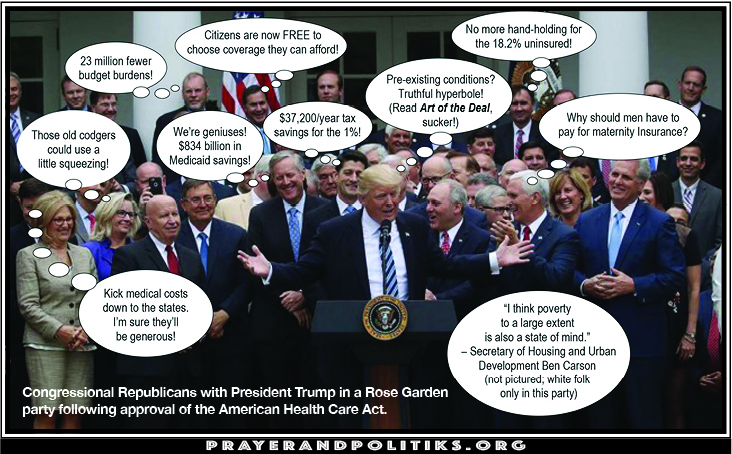
¶ “US Health Care Ranked Worst in the Developed World. The U.S. ranks worst among 11 wealthy nations in terms of ‘efficiency, equity and outcomes’ despite having the world's most expensive health care system.” —Melissa Hellmann, Time
¶ In case you didn’t already know this: Researchers have documented the fact that singing in a choir is good for your health. —Nick Collins, The Telegraph
¶ “It is a rare unifying moment. Hospitals, doctors, health insurers and some consumer groups, with few exceptions, are speaking with one voice and urging significant changes to the Republican health care legislation.” —Reed Abelson & Katie Thomas, New York Times
¶ "When the head aches, all the body is the worse." —English Proverb
¶ “Did you know that before 1973 it was illegal in the US to profit off of health care? The Health Maintenance Organization Act of 1973 passed by Nixon changed everything.” —Investment Watch Blog
¶ Hymn of praise. “Ain’t That Good News,” Stellenbosch University Choir.
¶ “‘We’re going to have insurance for everybody. . . . There was a philosophy in some circles that if you can’t pay 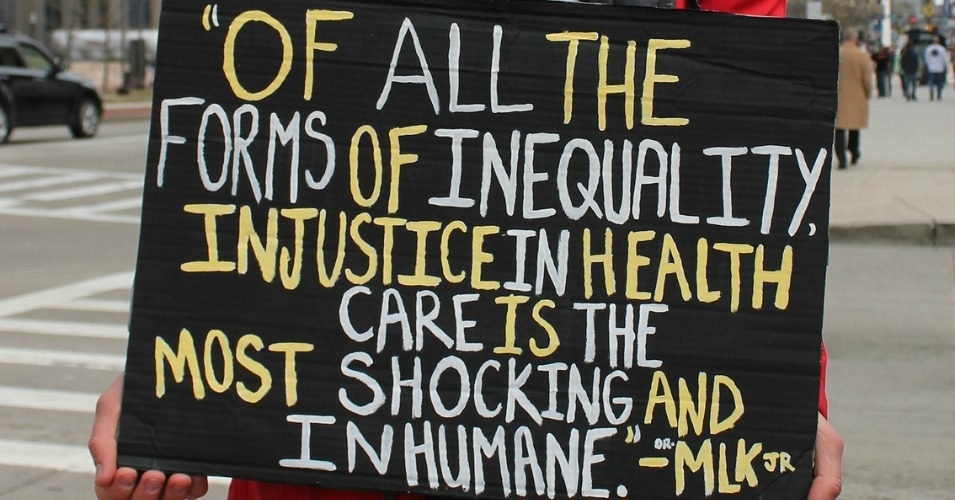 for it, you don’t get it. That’s not going to happen with us.” —Donald Trump, 11 January 2017 press conference
for it, you don’t get it. That’s not going to happen with us.” —Donald Trump, 11 January 2017 press conference
¶ “The Great Healthcare Bloat: 10 Administrators for Every 1 U.S. Doctor.” —Heather Ross, healthline
¶ “The obscene spectacle of House Republicans gathering in the Rose Garden to celebrate the House’s passage of a bill that would likely strip insurance coverage from tens of millions of Americans, while simultaneously serving as a massive tax break for the wealthy, had the callous feel of the well-heeled dancing on the poor’s graves.” —Charles M. Blow, New York Times
¶ "It's bizarre that the produce manager is more important to my children's health than the pediatrician." —Meryl Streep
¶ Confession. “Some basic level of health care ought to be considered a fundamental human right, along with free speech, the right to vote, and all other recognized provisions for what it means to pursue ‘life, liberty, and 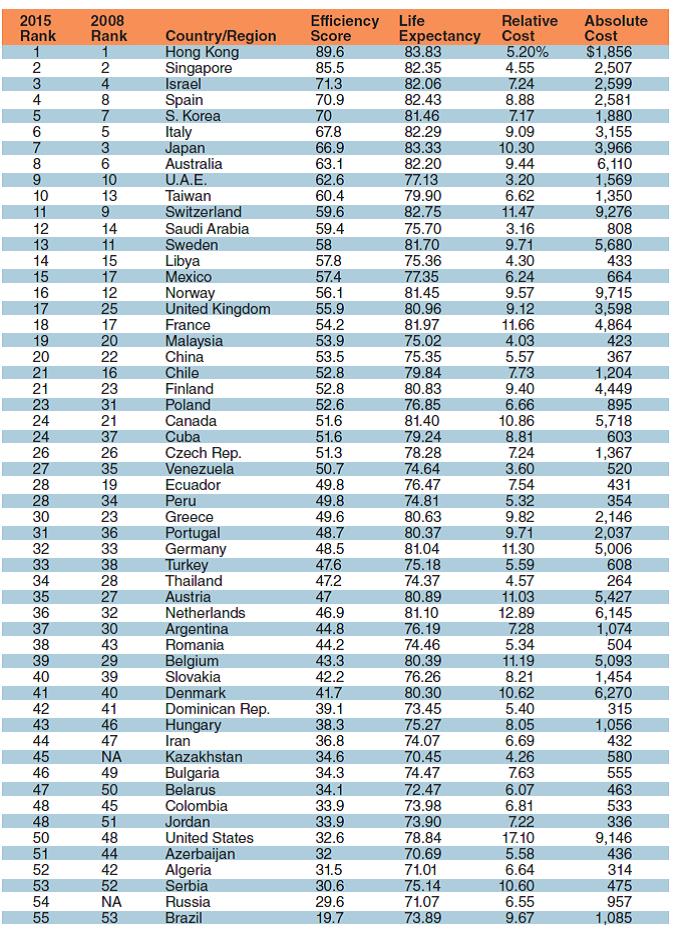 the pursuit of happiness.’” —Ken Sehested, “Health care as a fundamental human right”
the pursuit of happiness.’” —Ken Sehested, “Health care as a fundamental human right”
¶ “For every three doctors in the U.S. there are two staffers handling paperwork.” —Sarah Kliff, “8 facts that explain what’s wrong with American health care” Vox
¶ “There are about 200 countries on our planet, and each country devises its own set of arrangements for meeting the three basic goals of a health care system: keeping people healthy, treating the sick, and protecting families against financial ruin from medical bills. But we don't have to study 200 different systems to get a picture of how other countries manage health care. For all the local variations, health care systems tend to follow general patterns. There are four basic systems.” —excerpt from T.R. Reed, “The Healing of America: A Global Quest for Better, Cheaper, and Fairer Health Care,” reprinted in “Frontline”
¶ Hymn of lamentation. “In My Time of Dyin’,” Bob Dylan.
¶ "Life expectancy would grow by leaps and bounds if green vegetables smelled as good as bacon." —Doug Larson
¶ Why does the US alone, among other industrialized countries, lack universal health care? “Its culture is unusually individualistic, favoring personal over government responsibility; lobbyists are particularly active, spending billions to ensure that private insurers maintain their status in the health system; and our institutions are designed in a manner that limits major social policy changes from happening. As long as the reasons above remain, there is little reason to expect universal coverage in America anytime soon. —Timothy 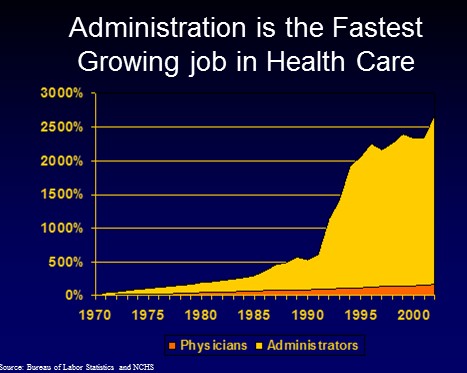 Callaghan, The Conversation, posted in Business Insider
Callaghan, The Conversation, posted in Business Insider
¶ "America’s healthcare system is second only to Japan, Canada, Sweden, Great Britain, . . . well, all of Europe. But you can thank your lucky stars we don’t live in Paraguay!" —Homer Simpson, The Simpsons
¶ “If the health-care system were to break off from the United States and become its own economy, it would be the fifth-largest in the world. ‘It would be bigger than the United Kingdom or France and only behind the United States, China, Japan, and Germany,’ says David Blumenthal, executive director of the nonprofit Commonwealth Fund.” —Sarah Kliff, “8 facts that explain what’s wrong with American health care,” Vox
¶ Words of assurance. “Jesu, Joy of Man’s Desire,” J.S. Bach, Cantata, BWV 147.
¶ The Medicaid safety net provides health insurance for more people than any other payer, covering 72 million—more than one in five US residents. Half are children; the majority of the others are seniors, many requiring long-term nursing care, along with others living on the edge of desperation. —Ron Pollack, Yes! magazine
¶ “The Affordable Care Act never really solved the healthcare crisis. It treated healthcare as a commodity allocated through market forces rather than as a public good and failed to address the profiteering at the core of our healthcare system, forcing it to use a series of confusing and convoluted mechanisms to expand heath insurance coverage and regulate health insurance providers.” —Mark Dudzic, “Six Ways Trumpcare Makes Healthcare Worse (and One Way to Make It Better),” CommonDreams
¶ Professing our faith. In providing for those with few resources, as St. Ambrose put it: “You are not making a gift  of what is yours to the poor man, but you are giving him back what is his. You have been appropriating things that are meant to be for the common use of everyone. The earth belongs to everyone, not to the rich.”
of what is yours to the poor man, but you are giving him back what is his. You have been appropriating things that are meant to be for the common use of everyone. The earth belongs to everyone, not to the rich.”
¶ "The root of all health is in the brain. The trunk of it is in emotion. The branches and leaves are the body. The flower of health blooms when all parts work together." —Kurdish proverb
¶ “But the claim that corporations are losing money on Obamacare ignores the record-breaking profits and compensation packages that health insurers continue to collect. . . . UnitedHealth celebrated revenues that quarter totalling $46.5 billion, an increase of $10 billion since the same time last year.” —Amy Martyn, Consumer Affairs
¶ “A federal judge has ruled [in January] that Aetna wasn't being truthful when the health insurer said last summer that its decision to pull out of most Obamacare exchanges was strictly a business decision triggered by mounting losses. U.S. District Judge John Bates concluded this week that Aetna's real motivation for dropping  Obamacare coverage in several states was ‘specifically to evade judicial scrutiny’ over its merger with Humana.” —Matt Egan, CNN Money
Obamacare coverage in several states was ‘specifically to evade judicial scrutiny’ over its merger with Humana.” —Matt Egan, CNN Money
¶ “The largest health insurance companies in the United States reaped historically large profits in the first quarter of this year, despite all the noise surrounding the Affordable Care Act's individual marketplaces.” —Bob Herman, “Profits are booming at health insurance companies,” Axios
¶ “The Untold Story Behind Skyrocketing Obamacare Premiums. . . . So the Affordable Care Act’s opponents used a backdoor maneuver in late 2014 to practically guarantee that by this year, insurers would be bailing out and health insurance premiums would be soaring.” —Claire DeMatteis, Linkedin
¶ Hymn of resolution. "Take, O take me as I am, summon out what I shall be,
set your seal upon my heart and live in me." —John Bell, Einzug beim Evensong, “Take, O, Take Me As I Am”
¶ “[House Speaker Paul] Ryan and the Republicans are taking free market fundamentalism to a new level of absurdity. Under his logic, if someone can’t afford antibiotics when they get an infection and therefore die, they've ‘chosen’ to die.” —Robert Reich, in a FaceBook comment
¶ Amazing healthcare short story. You may recall the 2015 press conference with former US President Jimmy Carter announced his cancer diagnosis. Stunningly, he simultaneously announced that should he not accomplish anything else, “I’d like to see the last Guinea worm die before I do.” Few know this has been Carter’s passion for many years. [Thankfully, Carter recovered.]
“When the Carter Center first became involved with Guinea worm [the afflicted live in excruciating pain], there were an estimated 3.5 million cases.” In January “the President announced that the number of cases has  dropped to just 25 in three countries: Chad, Ethiopia, and South Sudan.” —Jennifer Rainey Marquez, Atlanta Magazine
dropped to just 25 in three countries: Chad, Ethiopia, and South Sudan.” —Jennifer Rainey Marquez, Atlanta Magazine
¶ "The I in illness is isolation, and the crucial letters in wellness are we." —Author unknown
¶ “Let us imagine that you would like to redistribute hundreds of billions of dollars from working class people to the rich, and wouldn’t hesitate to risk the lives of tens of thousands of people to do so. Well, as luck would have it, there is a bill—the “American Health Care Act”—that does precisely that.” —Adam Gaffney, The Guardian
¶ Hymn of intercession. “I Need Thee Every Hour,” Southern Raised.
¶ By the numbers. “A study published in the American Journal of Public Health calculated that each year nearly 45,000 deaths are linked to lack of health insurance.” —Bruce Y. Lee, Forbes
¶ Offertory. “Czardas,” by Vittorio Monti, performed by Jennifer Jeon, violin, and T.J. Thompson, piano.
¶ "I have to tell you, it's an unbelievably complex subject. Nobody knew that healthcare could be so complicated." —President Donald Trump, 27 February 2017
¶ Preach it. “I can't believe I am standing today in a Christian church defending the proposition that we should  lessen the suffering of those who cannot afford health care in an economic system that often treats the poor as prey for the rich. I cannot believe there are Christians around this nation who are shouting that message down and waving guns in the air because they don't want to hear it.” —Rev. Jim Rigby, “Why Is Universal Health Care ‘Un-American?’”
lessen the suffering of those who cannot afford health care in an economic system that often treats the poor as prey for the rich. I cannot believe there are Christians around this nation who are shouting that message down and waving guns in the air because they don't want to hear it.” —Rev. Jim Rigby, “Why Is Universal Health Care ‘Un-American?’”
¶ Can’t makes this sh*t up.
• “The reason why older people should pay 5 times more than they’re paying right now is because . . . they are, in fact, 5 times sicker.” —White House Chief of Staff Rence Priebus, USPOLN
• In a Lewiston, Idaho, town hall meeting, Rep. Paul Labrador (R-Idaho) responded to a constituent’s comment by saying “Nobody dies because they don’t have access to health care.”
• “Just like Jesus said, ‘The poor will always be with us.’ There is a group of people that just don’t want health care and aren’t going to take care of themselves.” —Rep. Roger Marshall (R-KS), in a recent interview
¶ Call to the table. “Sister and brothers, you still don’t seem to get it, all this arguing over which gift of the Spirit is more important or deserves more attention in your newsletter. Fact is, all gifts—all your abilities, however modest or great; all your commitments and tasks, however mundane or noteworthy—come from the sam e Spirit.” —“What of it?” a litany for worship inspired by 1 Corinthians 12
e Spirit.” —“What of it?” a litany for worship inspired by 1 Corinthians 12
¶ The state of our disunion. “In the name of freedom—freedom from regulationthe banks were permitted to wreck the economy. In the name of freedom, taxes for the super-rich are cut. In the name of freedom, companies lobby to drop the minimum wage and raise working hours. In the same cause, US insurers lobby Congress to thwart effective public healthcare; the government rips up our planning laws; big business trashes the biosphere. This is the freedom of the powerful to exploit the weak, the rich to exploit the poor. Freedom? Always ask, for whom?” —George Monbiot, “This bastardised libertarianism makes 'freedom' an instrument of oppression,” The Guardian
¶ Best one-liner. “The propagandist's purpose is to make one set of people forget that certain other sets of people are human." —Aldous Huxley
¶ “As the distance between rich and poor grows in the United States, few consequences are so overlooked as the humiliating divide in dental care. High-end cosmetic dentistry is soaring, and better-off Americans spend well over $1 billion each year just to make their teeth a few shades whiter. Millions of others rely on charity clinics and hospital emergency rooms to treat painful and neglected teeth.” —Mary Jordan & Kevin Sullivan, Washington Post
¶ For the beauty of the earth. “Antarctica, With You at the Center,” four short films (9-14 minutes each) that explore the southern pole, from above  and from below. —New York Times
and from below. —New York Times
¶ Altar call. “If you look for truth, you may find comfort in the end; if you look for comfort you will not get either comfort or truth—only soft soap and wishful thinking to begin, and in the end, despair.” —C.S. Lewis
¶ Benediction. “We are what we practice. Therefore, excellence is not an act but a habit. —Aristotle
¶ Recessional. “Ode to Joy” in Jonny May’s ragtime arrangement.
¶ Lectionary for this Sunday. “Resources for Pentecost Sunday worship,” litanies, poem, sermon, commentary, and a script for choral reading of Acts 2:1-13.
¶ Lectionary for Sunday next. “To the mountain we go, for the baptismal vision of life lived unleashed in the Commissioner’s pow’r! So tarry on this mountain. Be still and know that Mercy’s full measure is given for guidance in the trials to come.” —“Great commission,” a litany for worship inspired by Matthew 28:16-20
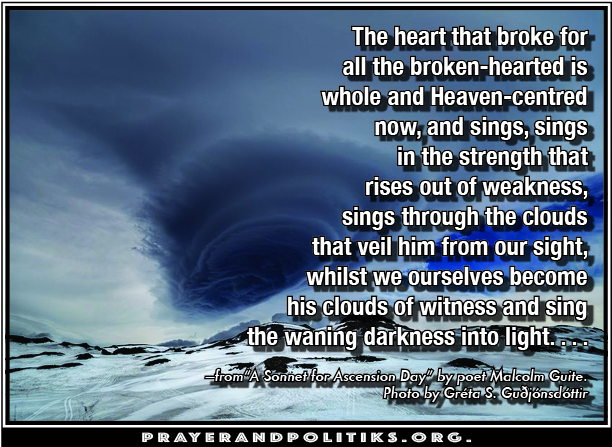 ¶ Just for fun. Man filming seagulls finds himself in a whale of a story. And he got it on film. (1:32 video)
¶ Just for fun. Man filming seagulls finds himself in a whale of a story. And he got it on film. (1:32 video)
# # #
Featured this week on prayer&politiks
• “Resources for Pentecost Sunday worship,” litanies, poem, sermon, commentary, and a script for a choral reading of Acts 2:1-13
• “Great commission,” a litany for worship inspired by Matthew 28:16-20
• “What of it?” a litany for worship inspired by 1 Corinthians 12
• “Health care as a fundamental human right,” an essay
©Ken Sehested @ prayerandpolitiks.org. Language not otherwise indicated above is that of the editor, as are those 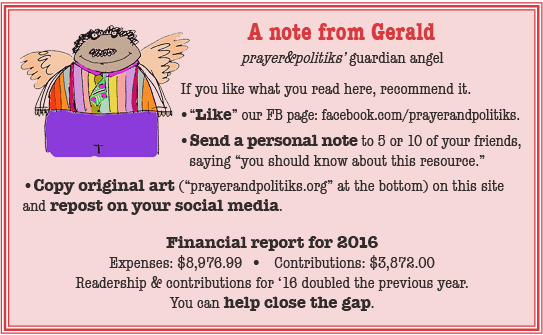 portions cited as “kls.” Don’t let the “copyright” notice keep you from circulating material you find here (and elsewhere in this site). Reprint permission is hereby granted in advance for noncommercial purposes.
portions cited as “kls.” Don’t let the “copyright” notice keep you from circulating material you find here (and elsewhere in this site). Reprint permission is hereby granted in advance for noncommercial purposes.
Your comments are always welcomed. If you have news, views, notes or quotes to add to the list above, please do. If you like what you read, pass this along to your friends. You can reach me directly at kensehested@prayerandpolitiks.org.



 particular stone we are to spend our lives carving, without knowing or being able to guess where it will take its place within the grand design.” —N.T. Wright
particular stone we are to spend our lives carving, without knowing or being able to guess where it will take its place within the grand design.” —N.T. Wright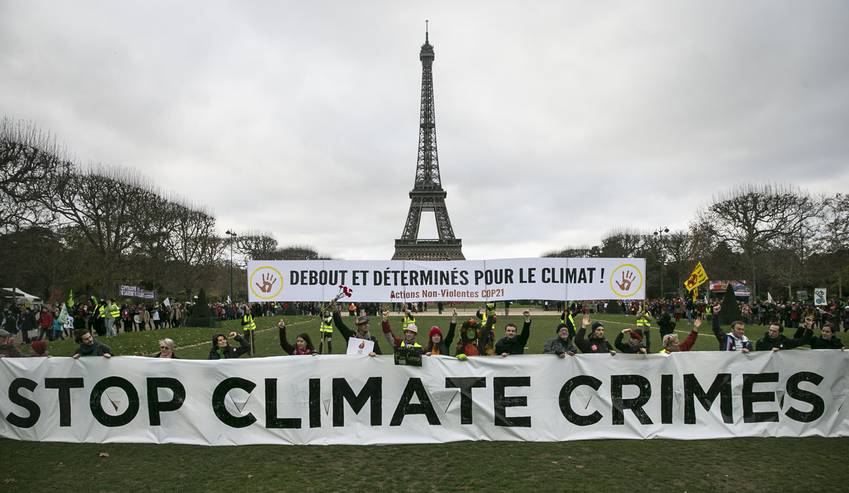
 ads, the Redeemer has heard our aching voice. God hears! God knows! This is our assurance against all blistering deceit.” —continue reading “
ads, the Redeemer has heard our aching voice. God hears! God knows! This is our assurance against all blistering deceit.” —continue reading “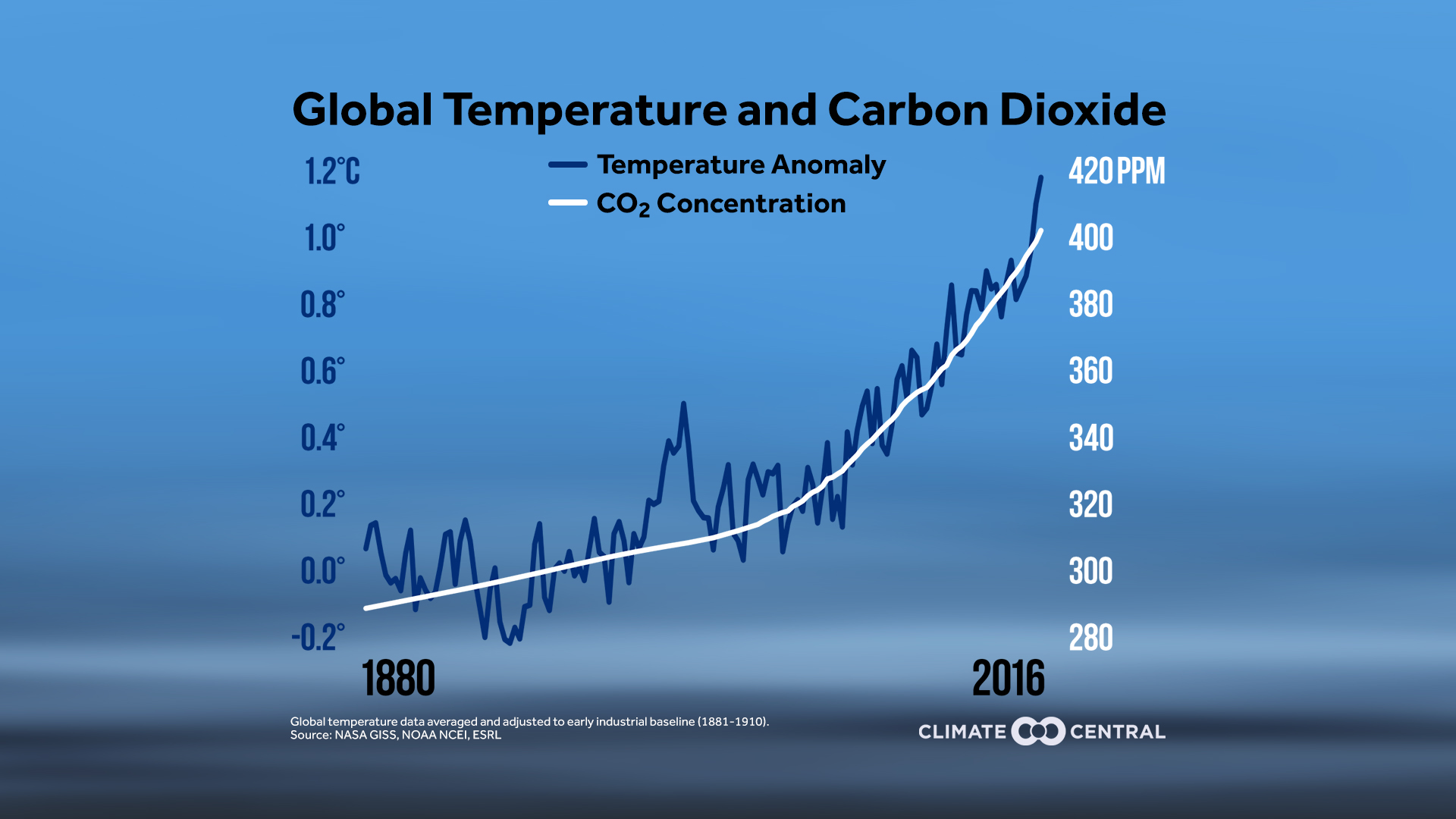 will preserve ourselves and our communities by the sustained application of hope and dissatisfaction to what is by comparison very small. We are on a path to learning to be ambitious about the small.” —part of a statement read at a climate change march in Asheville, NC, by Greg Yost who, at the time was among the 300,000 participants in the 2014 “People’s Climate March” in New York City
will preserve ourselves and our communities by the sustained application of hope and dissatisfaction to what is by comparison very small. We are on a path to learning to be ambitious about the small.” —part of a statement read at a climate change march in Asheville, NC, by Greg Yost who, at the time was among the 300,000 participants in the 2014 “People’s Climate March” in New York City shared burden, sustained attention and public accountability, with virtually all the nations of the world devoting measurable levels of commitment to achieving a common goal. These qualities do make a difference.
shared burden, sustained attention and public accountability, with virtually all the nations of the world devoting measurable levels of commitment to achieving a common goal. These qualities do make a difference. the world’s #1 emitter of carbon dioxide (CO2). I don’t remember any journalist reminding us that China’s population is more than four times that of the US. On a per capita basis, China’s CO2 rate is 7.7. In India, the second largest polluter, that figure is 1.9. The US rate is 16.1. —see more data at
the world’s #1 emitter of carbon dioxide (CO2). I don’t remember any journalist reminding us that China’s population is more than four times that of the US. On a per capita basis, China’s CO2 rate is 7.7. In India, the second largest polluter, that figure is 1.9. The US rate is 16.1. —see more data at  fracking. —see more at Reynard Loki, “
fracking. —see more at Reynard Loki, “ discipleship.” Read his “
discipleship.” Read his “ profound change begin at home, so at the very least get serious about the 4 “R”s of consumption: recycle, reduce, reuse, refuse. Make a concrete, measurable commitment; educate yourself and those in your web of relations; speak out on public policy issues; take bold public actions. Find a starting place and allow that to deepen your analysis and commitment.
profound change begin at home, so at the very least get serious about the 4 “R”s of consumption: recycle, reduce, reuse, refuse. Make a concrete, measurable commitment; educate yourself and those in your web of relations; speak out on public policy issues; take bold public actions. Find a starting place and allow that to deepen your analysis and commitment.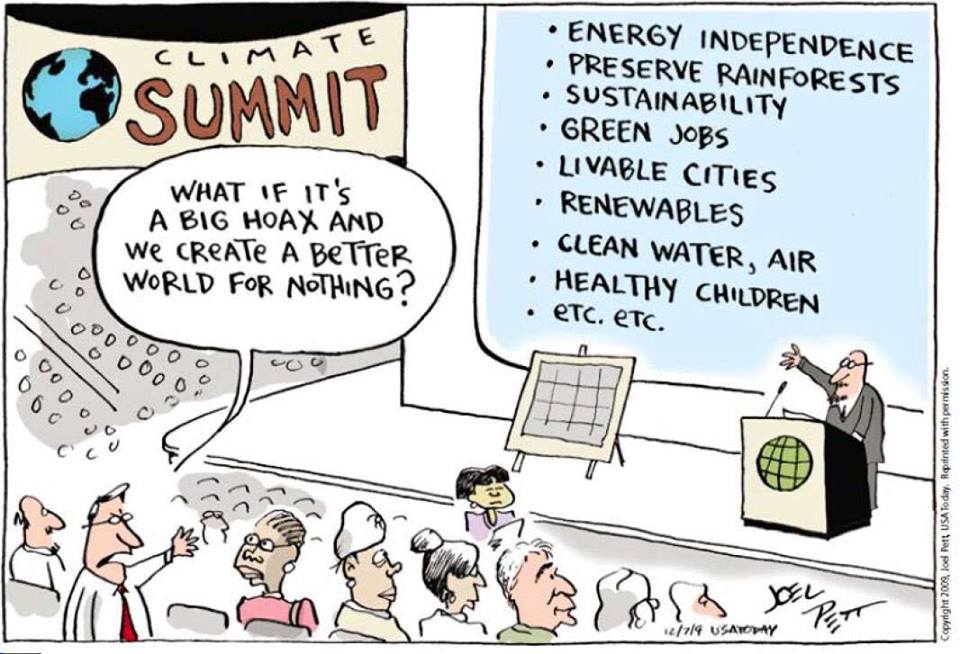 themselves, the moon, the stars, declare the Blessed One’s beauty and bodacious bounty, along with the splendorous vocation of humanly stewards. —kls, adaptation of Psalm 8:3-8
themselves, the moon, the stars, declare the Blessed One’s beauty and bodacious bounty, along with the splendorous vocation of humanly stewards. —kls, adaptation of Psalm 8:3-8 ©Ken Sehested @ prayerandpolitiks.org. Language not otherwise indicated above is that of the editor, as are those portions cited as “kls.” Don’t let the “copyright” notice keep you from circulating material you find here (and elsewhere in this site). Reprint permission is hereby granted in advance for noncommercial purposes.
©Ken Sehested @ prayerandpolitiks.org. Language not otherwise indicated above is that of the editor, as are those portions cited as “kls.” Don’t let the “copyright” notice keep you from circulating material you find here (and elsewhere in this site). Reprint permission is hereby granted in advance for noncommercial purposes.

 for it, you don’t get it. That’s not going to happen with us.” —
for it, you don’t get it. That’s not going to happen with us.” — the pursuit of happiness.’” —Ken Sehested, “
the pursuit of happiness.’” —Ken Sehested, “ Callaghan
Callaghan of what is yours to the poor man, but you are giving him back what is his. You have been appropriating things that are meant to be for the common use of everyone. The earth belongs to everyone, not to the rich.”
of what is yours to the poor man, but you are giving him back what is his. You have been appropriating things that are meant to be for the common use of everyone. The earth belongs to everyone, not to the rich.” Obamacare coverage in several states was ‘specifically to evade judicial scrutiny’ over its merger with Humana.” —
Obamacare coverage in several states was ‘specifically to evade judicial scrutiny’ over its merger with Humana.” — dropped to just 25 in three countries: Chad, Ethiopia, and South Sudan.” —
dropped to just 25 in three countries: Chad, Ethiopia, and South Sudan.” — lessen the suffering of those who cannot afford health care in an economic system that often treats the poor as prey for the rich. I cannot believe there are Christians around this nation who are shouting that message down and waving guns in the air because they don't want to hear it.” —Rev. Jim Rigby, “
lessen the suffering of those who cannot afford health care in an economic system that often treats the poor as prey for the rich. I cannot believe there are Christians around this nation who are shouting that message down and waving guns in the air because they don't want to hear it.” —Rev. Jim Rigby, “ e Spirit.” —“
e Spirit.” —“ and from below. —
and from below. — ¶ Just for fun. Man filming seagulls finds himself in a whale of a story. And he got it on film. (
¶ Just for fun. Man filming seagulls finds himself in a whale of a story. And he got it on film. ( portions cited as “kls.” Don’t let the “copyright” notice keep you from circulating material you find here (and elsewhere in this site). Reprint permission is hereby granted in advance for noncommercial purposes.
portions cited as “kls.” Don’t let the “copyright” notice keep you from circulating material you find here (and elsewhere in this site). Reprint permission is hereby granted in advance for noncommercial purposes.
 or relative you haven’t reached out to recently. Visit a shut-in or nursing home resident. Forgive someone. All acts of kindness are appreciated.’” —Zelda Caldwell, “
or relative you haven’t reached out to recently. Visit a shut-in or nursing home resident. Forgive someone. All acts of kindness are appreciated.’” —Zelda Caldwell, “ claims
claims soldiers’ is just one of many ways Americans' money is wasted in Afghanistan. . . . ‘Including US war funding unrelated to reconstruction, US appropriations for Afghanistan now totals more than three quarters of a trillion dollars—not including the $43.7 billion requested for fiscal year 2017.’” —
soldiers’ is just one of many ways Americans' money is wasted in Afghanistan. . . . ‘Including US war funding unrelated to reconstruction, US appropriations for Afghanistan now totals more than three quarters of a trillion dollars—not including the $43.7 billion requested for fiscal year 2017.’” — is gone, your time is gone / And we don't need ruin and lies / Your touch is death, your heart despised / Your time of reign and dark began / Your time to change is at an end.” —
is gone, your time is gone / And we don't need ruin and lies / Your touch is death, your heart despised / Your time of reign and dark began / Your time to change is at an end.” — —author unknown, from the internet
—author unknown, from the internet ill absorb every drought and mercy be restored to the marketplace. Lush meadows will break through the developer’s asphalt. Affordable homes will open for all whose hopes have been foreclosed. Those who buy and sell the futures of crops and petroleum, who barter menial wages for market share, will confront the One who crushes the delight for war and leads the prisoner to prosperity.” —“
ill absorb every drought and mercy be restored to the marketplace. Lush meadows will break through the developer’s asphalt. Affordable homes will open for all whose hopes have been foreclosed. Those who buy and sell the futures of crops and petroleum, who barter menial wages for market share, will confront the One who crushes the delight for war and leads the prisoner to prosperity.” —“ • “
• “ • “
• “